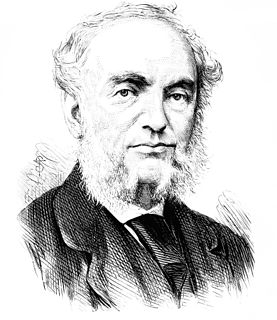A Quote by Cassius Jackson Keyser
[The] humanization of mathematical teaching, the bringing of the matter and the spirit of mathematics to bear not merely upon certain fragmentary faculties of the mind, but upon the whole mind, that this is the greatest desideratum is. I assume, beyond dispute.
Related Quotes
The Chinese philosopher Chuang-Tzu stated that true empathy requires listening with the whole being: The hearing that is only in the ears is one thing. The hearing of the understanding is another. But the hearing of the spirit is not limited to any one faculty, to the ear, or to the mind. Hence it demands the emptiness of all the faculties. And when the faculties are empty, then the whole being listens. There is then a direct grasp of what is right there before you that can never be heard with the ear or understood with the mind.
The moral faculties are generally esteemed, and with justice, as of higher value than the intellectual powers. But we should always bear in mind that the activity of the mind in vividly recalling past impressions is one of the fundamental though secondary bases of conscience. This fact affords the strongest argument for educating and stimulating in all possible ways the intellectual faculties of every human being.
I do not think the division of the subject into two parts - into applied mathematics and experimental physics a good one, for natural philosophy without experiment is merely mathematical exercise, while experiment without mathematics will neither sufficiently discipline the mind or sufficiently extend our knowledge in a subject like physics.
One cannot inquire into the foundations and nature of mathematics without delving into the question of the operations by which the mathematical activity of the mind is conducted. If one failed to take that into account, then one would be left studying only the language in which mathematics is represented rather than the essence of mathematics.
As a man who has devoted his whole life to the most clear headed science, to the study of matter, I can tell you as a result of my research about atoms this much: There is no matter as such. All matter originates and exists only by virtue of a force which brings the particle of an atom to vibration and holds this most minute solar system of the atom together. We must assume behind this force the existence of a conscious and intelligent mind. This mind is the matrix of all matter.
The point of mathematics is that in it we have always got rid of the particular instance, and even of any particular sorts of entities. So that for example, no mathematical truths apply merely to fish, or merely to stones, or merely to colours. So long as you are dealing with pure mathematics, you are in the realm of complete and absolute abstraction. . . . Mathematics is thought moving in the sphere of complete abstraction from any particular instance of what it is talking about.
The constructs of the mathematical mind are at the same time free and necessary. The individual mathematician feels free to define his notions and set up his axioms as he pleases. But the question is will he get his fellow mathematician interested in the constructs of his imagination. We cannot help the feeling that certain mathematical structures which have evolved through the combined efforts of the mathematical community bear the stamp of a necessity not affected by the accidents of their historical birth.
Though the structures and patterns of mathematics reflect the structure of, and resonate in, the human mind every bit as much as do the structures and patterns of music, human beings have developed no mathematical equivalent to a pair of ears. Mathematics can only be "seen" with the "eyes of the mind". It is as if we had no sense of hearing, so that only someone able to sight read music would be able to appreciate its patterns and harmonies.
We know that a statement proved to be good must be oorrect. New thoughts are constantly obtaining the floor. These two theories - that all is matter, or that all is Mind-will dispute the ground, until one is acknowledged to be the victor. Discussing his campaign, General Grant said: "I propose to fight it out on this line, if it takes all summer." Science says: All is Mind and Mind's idea. You must fight it out on this line. Matter can afford you no aid.
One way of saying that is that there is an objective reality beyond our mind. A way to think of this in a philosophic sense is to look between the two great extremes: the idealist philosophy that says mind and consciousness is the only thing and that matter is simply an illusion, or a Maya, the product of mind; and the other extreme, a strict materialist determinism, which says that mind and consciousness is a secondary phenomenon of the collision of matter.





































